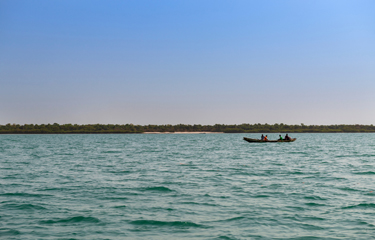The European Union and Guinea Bissau have signed a new five-year protocol to an existing Sustainable Fishing Partnership Agreement (SFPA) that allows access of E.U. vessels to Guinea Bissau waters for several fish species, including tuna, demersal fish, cephalopods, shrimps, as well as new category – small pelagic species.
In exchange for the fishing rights, the E.U. will give the west African nation EUR 15.6 million (USD 17.6 million), plus an additional contribution from E.U. shipowners.
An annual E.U. contribution of EUR 4 million (USD 4.5 million) is earmarked for supporting the sustainable development of fisheries, in particular through measures in favor of monitoring, control and surveillance, reinforcement of export and scientific capacities and the modernization of small-scale fisheries.
According to the European Commission (EC), the protocol will have an important and positive impact on the social and economic development of the country, and will help valorize its natural resources, while contributing to food security.
The E.U.’s sustainable fisheries agreements with non-EU countries are negotiated and concluded by the E.C. on behalf of the E.U. They allow E.U. vessels to fish for surplus stocks in the country's exclusive economic zone (EEZ) in a legally regulated environment.
These agreements also focus on resource conservation and environmental sustainability, ensuring that all E.U. vessels are subject to the same rules of control and transparency. At the same time, a clause concerning respect for human rights has been included in all protocols to fisheries agreements.
There are two main types of SFPAs: Tuna agreements that allow E.U. vessels to pursue migrating tuna stocks as they move along the shores of Africa and through the Indian Ocean; and mixed agreements, which provide access to a wide range of fish stocks in the partner country's EEZ.
The E.U. currently has tuna agreements in place with the Ivory Coast, Senegal, Liberia, Seychelles, the Cook Islands, Mauritius and Cape Verde. Along with Guinea Bissau, it has mixed agreements with Mauritania and Greenland.







